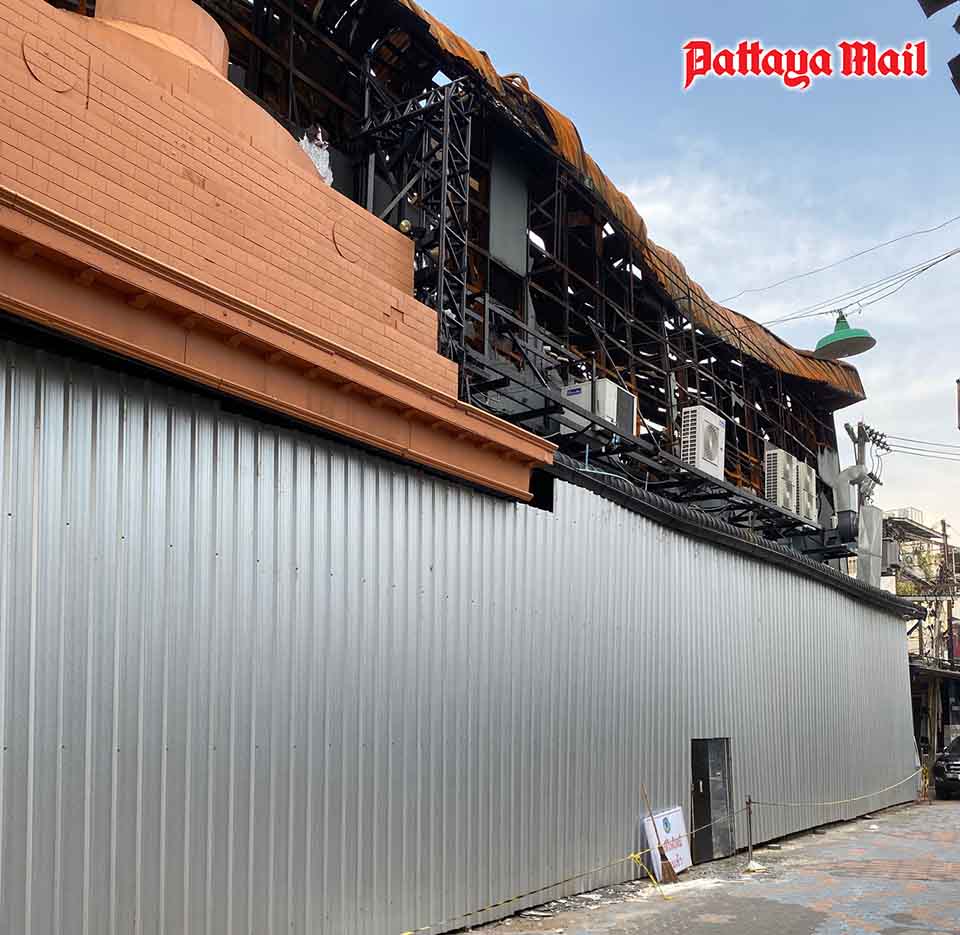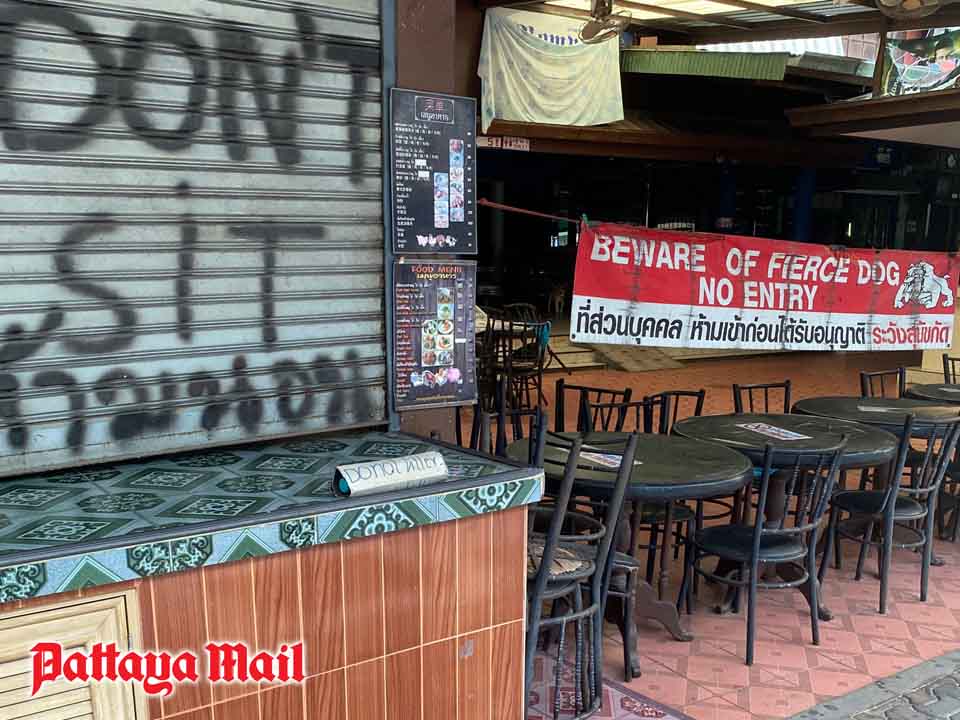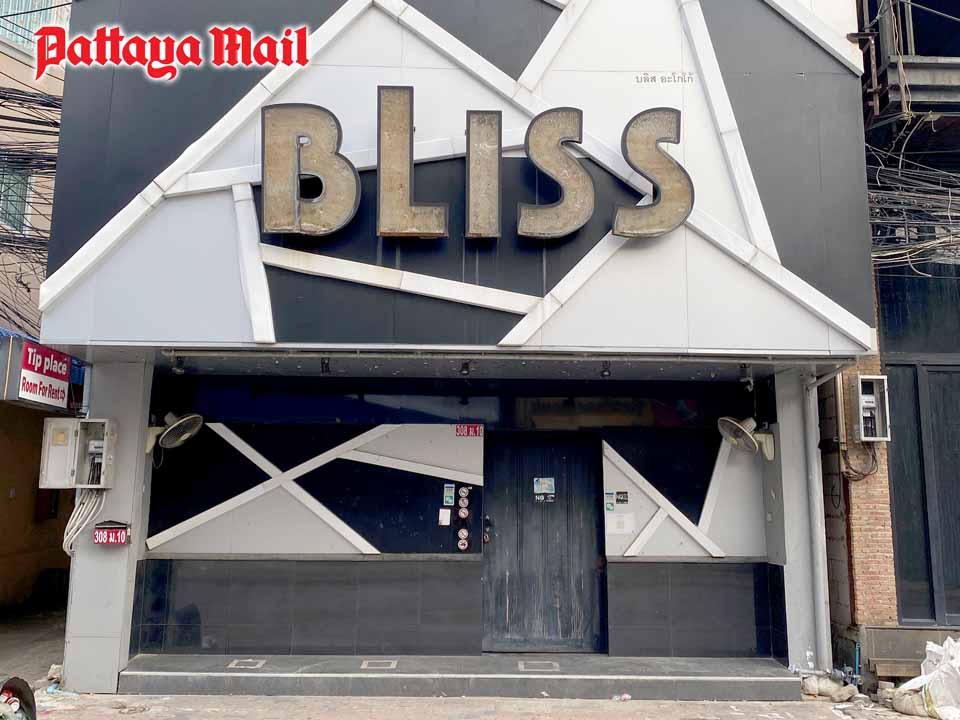
The dramatic transformation of Walking Street from superior fun spot to ghost city doldrums has taken a nosedive since last month’s fire. Huge metal strips surround the still-unexplained Club Nashaa conflagration, whilst many other buildings have been bedecked with similar sheeting for safety reasons. Separately, the number of privately-hired security guards on duty throughout the one-kilometer area has tripled. That presumably means that many of the padlocked businesses still have insurance of one sort or another. You never know what will happen next.
The eerie and empty atmosphere on Pattaya’s most famous street is interrupted only by three still-open shop units: a lone Family Mart convenience store and a small pharmacy which both appear to cater to the few locals still on site, and a Japanese clothes shop waiting patiently for the good times to roll. The last eatery, King Seafood, finally closed its doors last January, whilst the notice “open till late” on the once-popular McDonalds has been replaced by a telephone number promising “very good massage.”
One former bar has cut its protection costs by a furious chained dog which adds its own barking threats to the dual-language notice ordering you not to enter under any circumstances. When not threatening passersby, the unfortunate animal sits on a mat with the logo “Welcome.” A nearby security guard Mr Katee said, “The Nashaa fire has made everyone nervous. Even though there are no customers these days, there is still a lot of money tied up in these old buildings.” He thinks the owners and renters are waiting to be paid off in preparation for wholesale demolition.

Not everyone agrees. Some local keyboard warriors imagine it’s just a matter of time before business as usual returns post pandemic and the good times roll again. They should take a stroll there before becoming too confident. City Hall, for its part, certainly backs big changes to come. No permits to operate alcohol-related businesses will be issued for 2022, whilst the buildings on the seaward side, jutting into the water, have been scheduled for demolition. The provincial electric company is laboriously burying the overhead cables in Walking Street, but the general idea is to prepare for a walk-through leisure and business area rather than a refuge for chrome pole dancers.
The Eastern Economic Corridor, a rich consortium of Thai and foreign big-name companies, is the determining factor. The EEC has already funded several local projects – motorway links, Bali Hai harbor improvements, Jomtien and Pattaya beach renovation, and the hi-speed railway linking the area with Bangkok – and few doubt it will move soon on Walking Street. When the bulldozers do eventually move in, a very different street will emerge from the ashes. At any rate, the padlocked steel fences and reinforced barbed wire won’t be missed by anyone.

 |
 |
 |





